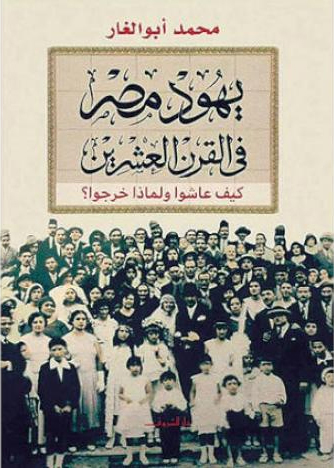Once home to as many as 75,000 Jews, today’s Egypt has a sparse population, with only nine Jewish Egyptians living in the country in 2021, according to the Jewish Virtual Library. Dr. Muhammad Abu al-Ghar’s new book, “The Jews of Egypt in the Twentieth Century: How They Lived and Why They Left” (Dar al-Shorouk, 2021, 476 pp) addresses the departure of Jews from the country from the early to mid-19th century to the present. In 11 chapters, Abu al-Ghar, an embryologist, looks into whether the establishment of the State of Israel was the main cause of the decline of the Egyptian Jewish population. When the tripartite aggression against Egypt occurred in 1956, the author was a medical student and witnessed the mass emigration of Egyptian Jews. His research was fueled by several questions that have stayed with him since then, though some may consider these questions simplistic rather than empirically founded: did these people consider themselves Egyptian, and if so, why did they leave? Were they pressured into leaving by the Egyptian government, Israel, or by world Zionism, or did they leave voluntarily? Did they hate or love Egypt, and do they carry in their hearts any beautiful memories of Egypt?
Abu al-Ghar speaks with Jews who left the country at different periods for different reasons and settled in Cairo or abroad, including Paris, Geneva, and Florida. He delves into the history of Jews in the region, beginning with their arrival during the mid-19th and early 20th centuries. The first Egyptian Jews were craftsmen, mostly living in poverty and without stable work. Some lived on the aid of the rich within their community, or through charitable institutions, but they did not differ from the general Egyptian population in language or appearance and did not speak Arabic with a different accent or dialect.
The Jewish population increased to 9,000 under the rule of Muhammad Ali from 1805 to 1848, a period in Egypt characterized by an openness to foreign nationalities, including Europeans and Armenians. During this time, members of the Jewish community began to rise to prominent positions. One important figure was “Yacoub,” who became the head of tax collectors, today’s equivalent of the Minister of Treasury, according to Abu al-Ghar. In the following two decades, the population steadily increased due to immigration from other countries within the Ottoman Empire.
By 1947, the Jewish population was an estimated 75,000 people. Though many held Egyptian citizenship, others failed to apply due to sheer ignorance of the process, according to Abu al-Ghar, as cited by Rasha Ahmad in Al-Sharq al-Awsat. Towards the end of the 1940s, however, the Egyptian government changed its treatment of the group, particularly those living in the Jewish Quarter who, though spoke Arabic fluently and had strong relationships to Egypt’s culture and people, were deprived of citizenship, forced into hardship, and ostracized from Egyptian society. Pushed into immigrating to Israel due to violent bomb attacks by the Muslim Brotherhood, the community suffered a 20% decrease in population.
Since then, the number of Jews in Egypt has plummeted throughout the years. Between 40,000 to 50,000 Jews emigrated following the Suez Crisis in 1956, and thousands more left after nationalization decisions in 1961. After the 1967 War, the remainder of the population left the country, with just about 1,000 Jews in Egypt in 1980 to less than a dozen members today.
By tracing the movement of Jews out of the country throughout history, Abu al-Ghar concludes that the establishment of Israel was not the primary cause of the Jewish Egyptian population’s decline, an interesting observation when compared with other Arab countries. “The Jews of Egypt in the Twentieth Century” challenges all previously published works about Jews in Egypt. The book was featured at the 52nd edition of the Cairo International Book Fair which took place from June to July.
Translated, edited, and compiled by Elie Chalala.
Translated, edited, and compiled by Elie Chalala.
Copyright © 2021 by Al Jadid

